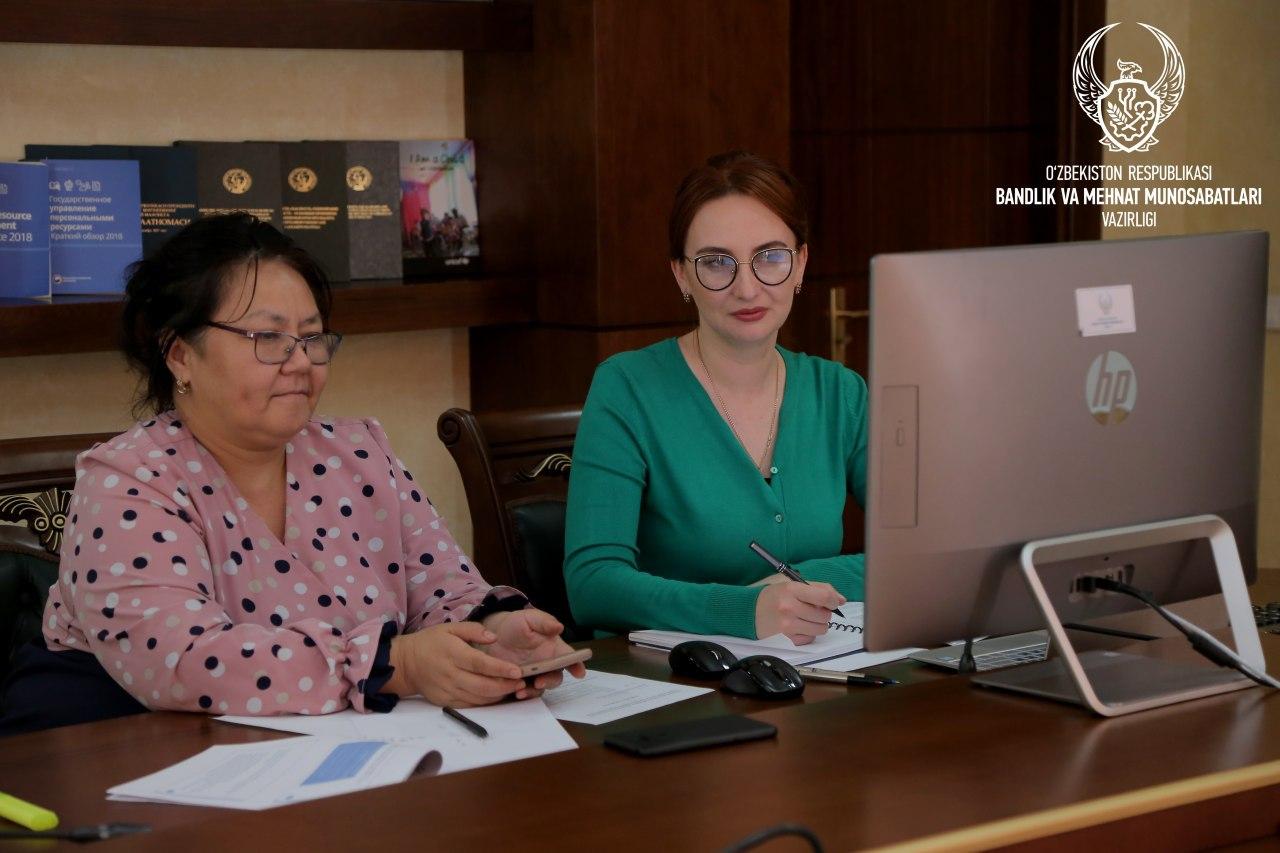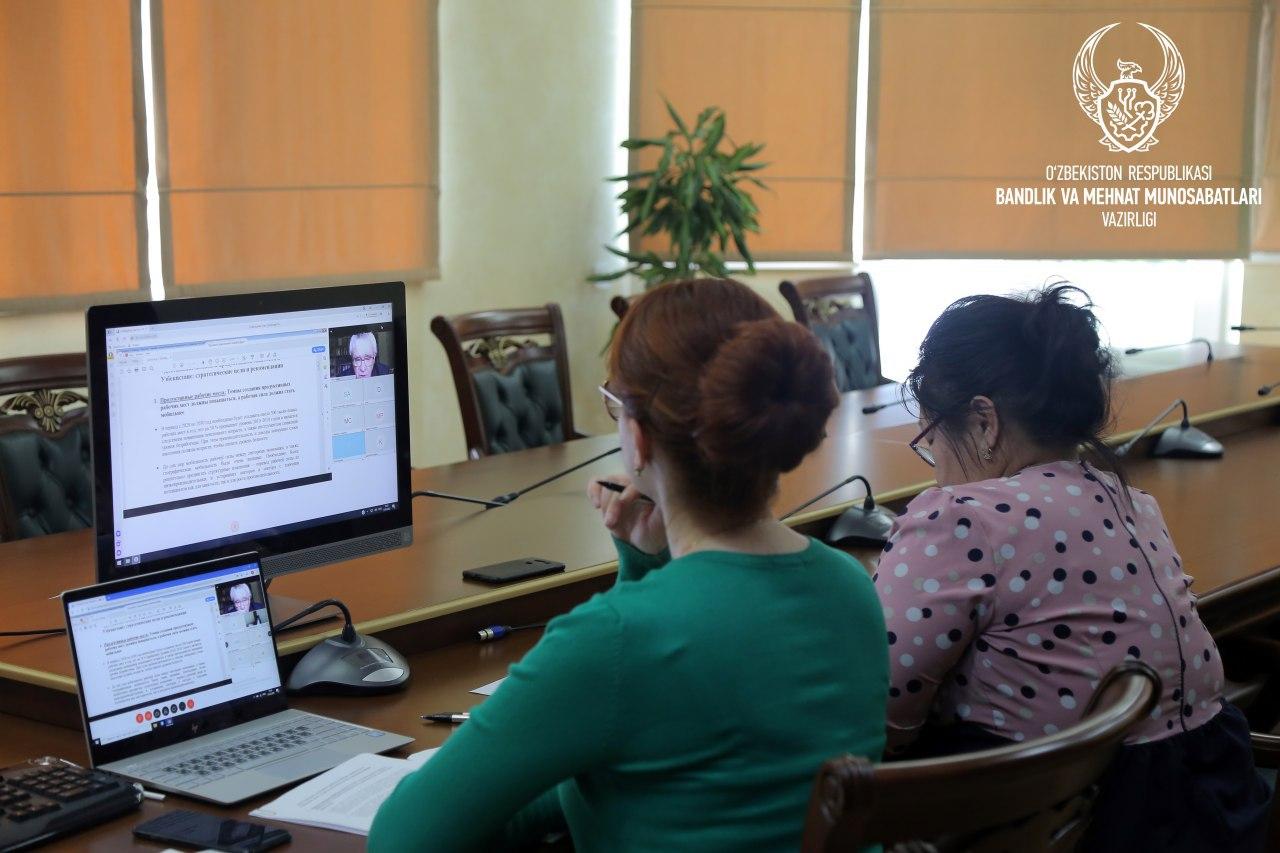Uzbekistan is developing a national employment strategy
Today, a meeting was held in the format of a videoconference to discuss the Review report on the preparation of the National employment strategy of Uzbekistan and determine further plans.
The event was attended by international consultants of the ILO, the team of the ILO Bureau for Eastern Europe and Central Asia, representatives of the Ministry of employment and labor relations of the Republic of Uzbekistan, as well as representatives of organizations of workers and employers of Uzbekistan.

According to the chief specialist on employment, ILO M. Pushkin, the development of a National employment strategy marks a climax of cooperation between Uzbekistan and the ILO, as is the consolidation of all efforts already made in the country and their transformation into a serious political document with the long-term nature.
The expert noted that the strategy defines the key directions of the country's development in the field of employment support.
During the event, a team of international consultants from the ILO, D. Campbell and P. Ronnas, presented key recommendations on the future prospects of economic development and employment, taking into account the experience of previous years. So,
• the primary need to increase the rate of productive job creation and increase labor mobility was noted;
• experts paid special attention to the need for further development of professional skills and the national qualifications system;
• the formalization of the economy, according to experts, will also serve to integrate the economy and the labor market;
• effective labour mobility will help reduce the imbalance between the creation of productive jobs on the one hand and the need for productive jobs on the other;
• well-designed labor market institutions can provide both social protection and employee safety, as well as a stable business climate.

The parties agreed on the implementation of further tasks for the development of the document.
The results noted the importance of systemic analysis of previous measures and developed recommendations for internal inter-ministerial consultations involving all stakeholders and capacity building Working group to develop the document involving teams of national and international experts of the ILO.









